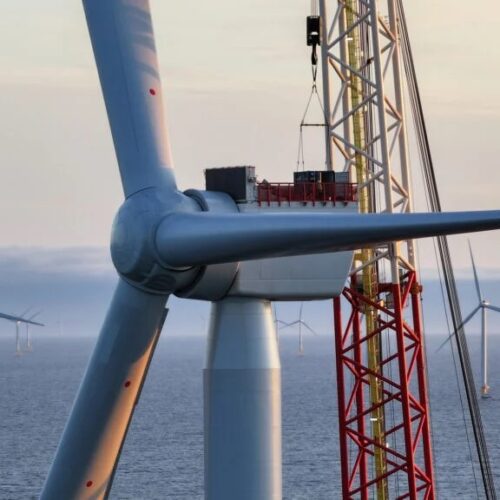UK energy secretary Ed Miliband has announced a visit to Beijing, where he is meeting with China’s national energy administrator minister Wang Hongzhi and environment minister Huang Runqiu.
Miliband arrived in Beijing on 14 March for three days of talks.
The UK government is expected to launch a formal climate dialogue with China and will invite Chinese ministers to London later this year, institutionalising climate change talks between the two countries.
The two countries will also sign a refreshed Clean Energy Partnership, updating how the UK and China engage on climate and energy for the first time in a decade.
According to the Department for Energy Security and Net Zero (DESNZ), pragmatic cooperation with China will “keen British people safe” from the climate crisis.
Although it is the world’s largest investor in and supplier of renewable energy and supporting technologies, China is the world’s largest emitter. DESNZ said on Friday (14 March) that Miliband will use the visit to engage “frankly” with China on UK concerns over issues like human rights in Hong Kong and forced labour in supply chains.
Establishing a formal platform with China creates a channel to challenge the country, DESNZ said. The department also believes re-engaging with China will be critical in delivering climate and energy security for Britain.
Miliband said: “It is simply an act of negligence to today’s and future generations not to engage China on how it can play its part in taking action on climate.”
In an article for the Guardian, the energy secretary pointed out that he is the first UK energy secretary to visit China since 2017. He said that “stepping back” from engagement with China has done nothing to advance the UK’s priorities, so the government will take a “new approach to China.”
UK-China Clean Energy Partnership
Under the 2015-2016 Conservative government, led by David Cameron, a Clean Energy Partnership was signed by the UK and China to establish cooperation in research and industry while transitioning to a low carbon global economy.
At the time, the government claimed it would strengthen the UK’s position as the partner of choice for China in low carbon energy.
The updated partnership, set to be signed this week, will provide clarity on areas where the UK government can collaborate with China on ‘areas of mutual benefit’, including emerging technologies like green hydrogen and carbon capture and storage.
Miliband will also offer advice on phasing out coal following the closure of the last UK coal-fired power plant in 2024.






